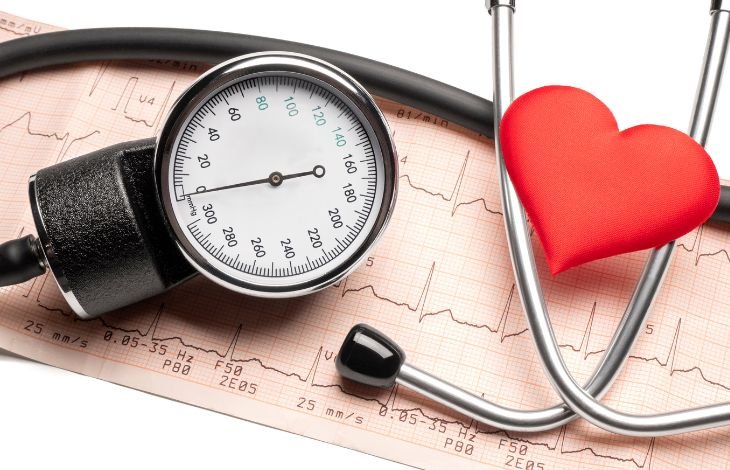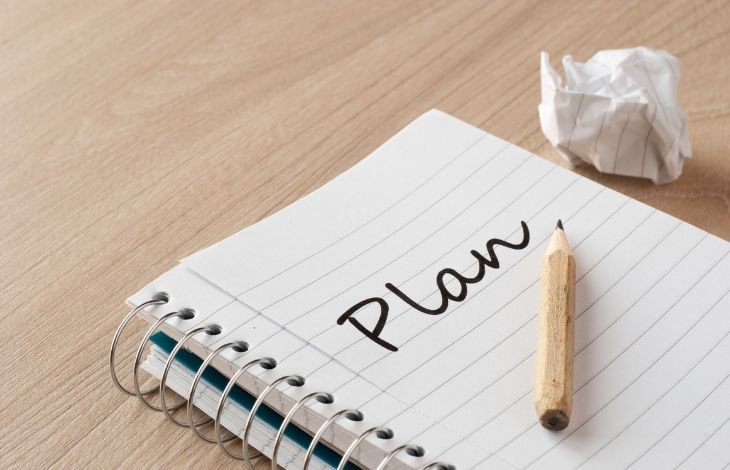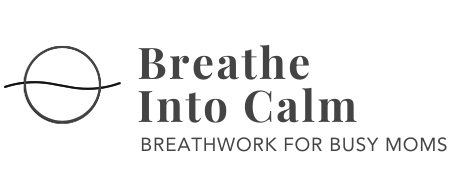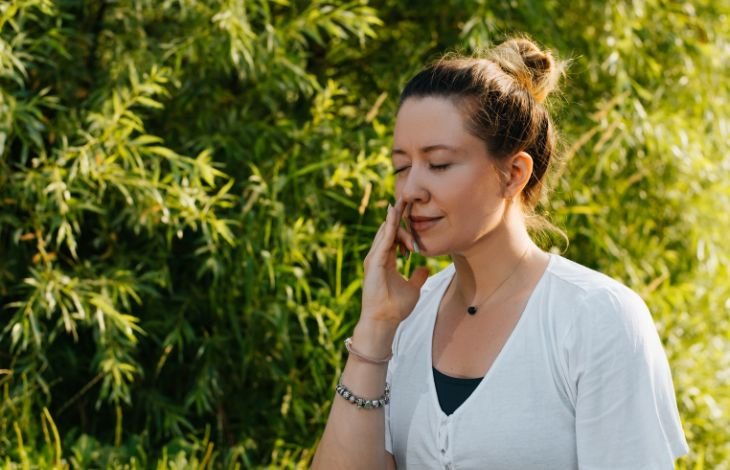
Quick Relief: The Best Breathing Exercises To Lower Blood Pressure
Table of Contents
ToggleAffiliate disclosure: some of the links on this site are affiliate links, meaning at no additional cost to you, I will be earning a commission if you click through and purchase.
According to the American Heart Association, nearly half of American adults have high blood pressure, but here’s something amazing – just 5 minutes of deep breathing daily can significantly help in lowering your systolic blood pressure. If you scour the internet researching natural methods for blood pressure management, breathing exercises consistently emerge as one of the most powerful yet underutilized tools we have. In this comprehensive guide, we’ll explore the best breathing exercises to lower blood pressure – scientifically-proven and all-natural.
Share this post:
Understanding the Science Behind Breathing and Blood Pressure

Our breathing patterns have a direct impact on our cardiovascular system through something called the autonomic nervous system. When we breathe slowly and deeply, we activate the parasympathetic nervous system – often called the “rest and digest” mode or the body’s relaxation response – which naturally lowers blood pressure and heart rate.
Research published in the Journal of Clinical Medicine shows that controlled breathing exercises can significantly reduce blood pressure readings in individuals with both normal (normotensive) and heightened blood pressure (hypertensive). The key lies in the relationship between our breath and the vagus nerve, which helps regulate our heart rate and blood pressure.
The science is clear – conscious breathing has the power to:
Reduce levels of stress hormones like cortisol
Decrease arterial wall tension
Improve heart rate variability
Enhance blood oxygen levels
Best Breathing Exercises To Lower Blood Pressure for Beginners
If you’re new to breathing exercises, start with these fundamental techniques:
This is the foundation of all breathing exercises:
Sit or lie comfortably
Place one hand on your chest and the other on your belly
Breathe in slowly through your nose, feeling your belly expand
Exhale slowly through pursed lips
Practice for 5-10 minutes daily
Used by Navy SEALs for stress management:
Inhale for 4 counts
Hold for 4 counts
Exhale for 4 counts
Hold for 4 counts
Repeat the cycle
Pursed Lip Breathing
Perfect for immediate stress relief:
Inhale through your nose for 2 counts
Purse your lips as if whistling
Exhale slowly for 4 counts
Advanced Pranayama Breathing Exercises

For those ready to explore deeper practices, these yogic breathing techniques offer powerful benefits:
Alternate Nostril Breathing (Nadi Shodhana)
A study in the International Journal of Yoga found this technique particularly effective for blood pressure management:
Close right nostril with thumb
Inhale through left nostril
Close left nostril with ring finger
Release thumb and exhale through right nostril
Repeat, alternating sides
Bhramari (Humming Bee Breath)
This calming practice includes sound vibration:
Inhale deeply through the nose
Place your index fingers on your ears, there’s a cartilage between your cheek and ear. Gently press that cartilage.
As you exhale, make a gentle humming sound like a bee.
Practice 5-10 rounds
Timed Breathing Exercises for Quick Relief
These techniques are some of the best breathing exercises to lower blood pressure if you have a busy schedule:
This deep rhythmic breathing technique has the potential to reduce anxiety and promote relaxed sleep by activating the parasympathetic nervous system, which in turn relaxes the brain, decreases heart rate and blood pressure, and increases melatonin levels.:
Inhale quietly for 4 counts
Hold breath for 7 counts
Exhale forcefully for 8 counts
Repeat up to 4 cycles
Resonant Breathing
Research shows breathing at about 6 breaths per minute is optimal for blood pressure reduction:
Inhale for 5 seconds
Exhale for 5 seconds
Continue for 5-10 minutes
Creating Your Daily Breathing Practice

Consistency is key for seeing results, and deep breathing should ultimately be performed daily for the best outcome. Making a plan and sticking to it could make a world of difference for your readings. Here’s how you can establish a routine:
Best Times to Practice
Early morning (before breakfast)
Before bed
During work breaks
When feeling stressed
Recommended Duration
Start with 5-10 minutes daily
Gradually increase to 15-20 minutes
Split into 2-3 sessions if needed
Tracking Progress
Keep a simple journal noting:
Blood pressure readings
Practice duration
Type of exercises
How you feel before and after
Using guided breathing apps can provide a structured approach to your conscious breathing practice. These apps tailor sessions to meet individual needs, making it easier to stay consistent and focused. Checkut our comprehensive list of the best apps available.
Common Mistakes and Troubleshooting
Avoid These Common Errors:
Breathing too quickly or forcefully
Practicing immediately after meals
Holding breath too long
Irregular practice schedule
Signs You’re Doing It Wrong:
Feeling lightheaded
Muscle tension
Shallow chest breathing
Difficulty maintaining rhythm
Safety Considerations and Precautions

While breathing exercises are generally safe, consult your healthcare provider before starting, especially if you have:
Hypertension
Heart conditions
Respiratory problems
Recent surgery
Pregnancy
Always consider breathing exercises as complementary to, not a replacement for, prescribed medications. The American Heart Association recognizes breathing exercises as a beneficial lifestyle modification for blood pressure management.
Final Thoughts

Breathing exercises offer a powerful, natural way to support healthy blood pressure levels. The best part? They’re free, can be done anywhere, and have no side effects when practiced correctly. Start with just 5-10 minutes daily and gradually increase as you become more comfortable. Remember, consistency is key – make these exercises part of your daily routine, just like brushing your teeth!
So, are you ready to take your first deep breath toward better health? These best breathing exercises to lower blood pressure are a great place to commence from the comfort of your own home. Start with basic diaphragmatic breathing technique and slowly work your way up to more advanced practices. Your heart will thank you!
*Note: Always consult with your healthcare provider before starting any new health practice, and use these exercises as a complement to your existing treatment plan.*
Leave a reply
Got any questions or want to share your favorite breathing exercises? Let me know in the comments below!





